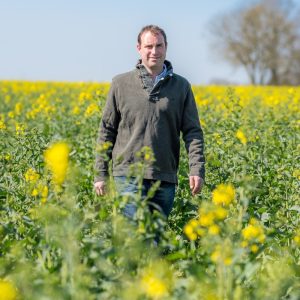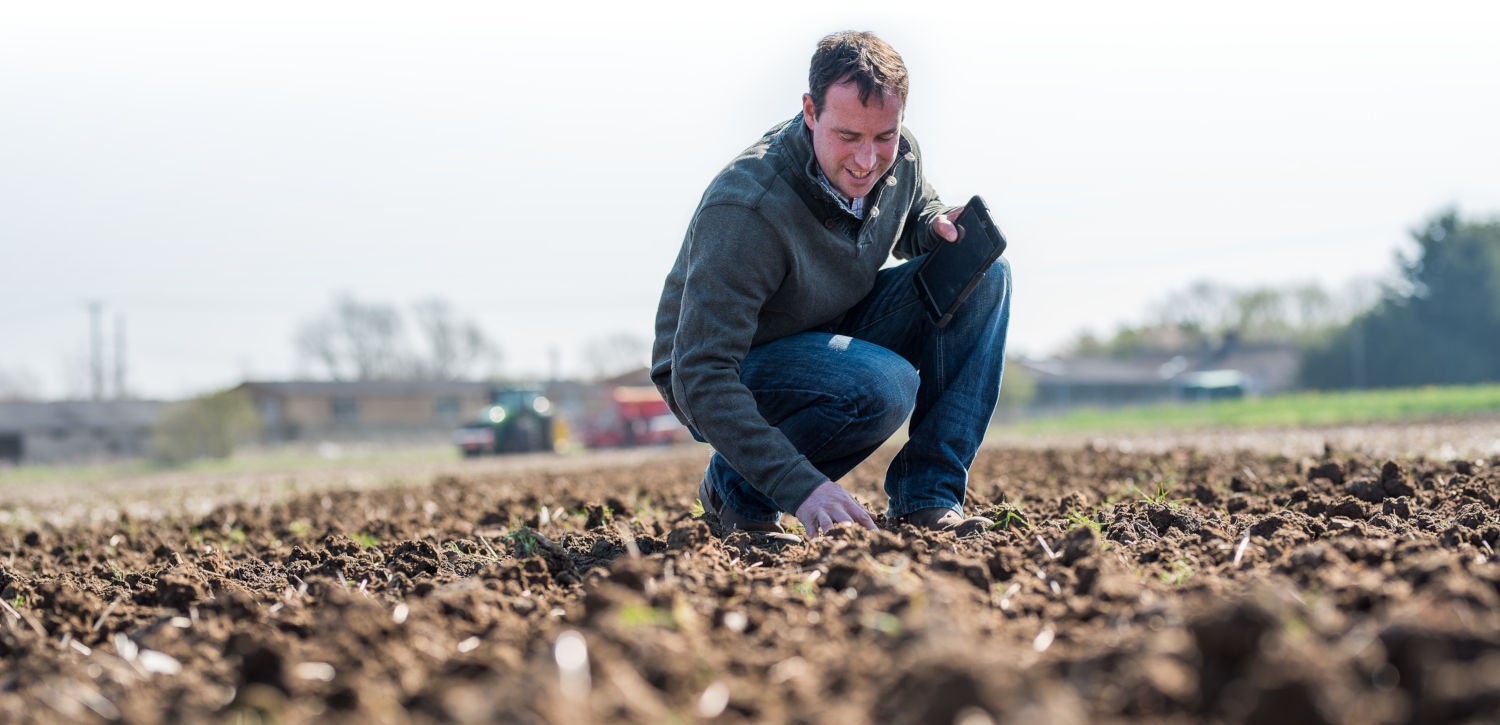[ad_1]

Cooking oil is one of the products to be rationed by supermarkets in recent times, making the homegrown supply of oil seed rape even more important. The future of the UK crop seemed threatened recently when the only pesticide for flea beetle was withdrawn, but innovative farmers like Richard Ling of Rookery Farm in Diss, Norfolk, have mitigated the impact with a more environmentally friendly approach.
“It did seem bonkers to me that we were doing all this spraying for one insect. It was early on in our Monitor Farm programme, so we talked to a number of experts and discovered that there is a parasitic wasp that lays its eggs inside the flea beetle, which affects its ability to reproduce and eventually kills it.
“After learning this, we did some trials with companion crops – plants such as vetch, clover and buckwheat – that help mask the crop from the pest but also help to feed the crop. Clover and vetch capture nitrogen and buckwheat makes phosphorus more available to the plants. With this planting it is no longer a monocrop; this doesn’t stop the flea beetle but it does confuse it and this reduces the loss.”
Oil seed rape is just one of the trials on the farm that Richard is keen to share with fellow members of Agri-TechE. The farmer is one of many that joined the business networking organisation to make agri-tech more fit for purpose.
“Our main driver for joining Agri-TechE was to explore new avenues for the business and try to keep up with technology. We kept coming up with the same issues: that there are some good products coming to the market, but they keep missing the point – it is not all joined up yet.
“I spoke to Belinda [Clarke, Director of Agri-TechE] a while ago and could see that what she was trying to achieve was going to lead to some really positive outcomes, and the technology coming through might actually start delivering something of use to us on-farm.”

“The technology is nearly there to measure emergence and provide plant counts. If we could link this information to the soil and the yield maps, then we can make decisions about adjusting seed rates to improve consistency of the crop and better utilise nutrients.
“There is equipment, sprayers and such, that can collate this data, but we don’t have the management tools to bring it all together. There are 101 different companies selling management tools, but none that have hit the nail on the head. As technology moves forward with automated machines, then other pieces of the jigsaw, like connectivity, are also needed.”
Rookery Farm is one of the AHDB Monitor Farms, and Richard says he has found his on-farm trials invaluable.
“We have recently moved from min-till and now do direct drilling. We establish a green crop straight after the combine to help protect the soil over the winter and help capture any unused nutrients. This leads onto building and cycling of nutrients in our soils once they have been destroyed before drilling our cash crop. Thanks to the trials, I have learnt that the cover needs to be gone by the end of January at the latest. Drilling on the green does not work as well for us in the spring as it does in the winter.
“We’ve got some cultivation trials at the moment showing three different methods: direct drill, 50mm shallow cultivation like min-till and 200mm deep one pass – deeper cultivation to remove compaction but without inversion of the soil. The outcomes from the farmer side of the trial have shown that the yield from all three is very similar; all the cultivation has added is a time cost.
“In fact surprisingly, the shallow till was the worst as this created short term seed zone flooding during the winter, which we think was caused by a pan formed from the shallow cultivation pass at 50mm depth in the soil.
“The trial was reassuring as it demonstrated that we were not losing yield, but saving money and benefiting the soil structure and environment. Two years running we got the same results, which is really pleasing.
“It is difficult to do a cost-benefit analysis on new technology, which is why it is key to get involved on-farm. We recently got a grant for a weather station and bought the Metos system that has disease forecasting and modelling on it. It has sensors for temperature, solar radiation, rainfall, wind and soil moisture probes. On dry days it can work out how much water is lost through evaporation and transpiration and uses leaf wetness to calculate dewfall. All of this builds into the disease forecasting.
“We didn’t trust it last year and continued spraying as normal, but found it predicted the disease pressure well, so this year we are using it more to back up what we are seeing.
“These are trials that I would be doing anyway because I’m that type of curious person that wants to challenge, to push forward. This is where it comes back to the technology side, which is why I want to keep an eye on and an ear out as to what’s going on, what might be useful to help save us time from a management perspective.
“If we carry on as we are, we will not be sustainable, we won’t be able to carry on farming – that’s how I see it. We’ve got the opportunity to make money by learning to farm differently. And it’s better for the environment, so there are many positives to be had.”
The Rookery Farm walk is scheduled for May, 16th 10:30-12:30. Please note: places are limited and will be on a first come first served basis with a maximum of 2 representatives from each organisation.
[ad_2]
Source link


